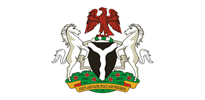Open A.I.R Project
NIALS’s Open Africa Innovation Research and Training Project (Open AIR Project)
Background Concept
Open AIR is a Pan-African network (http://www.openair.org.za/) of experts from different academic disciplines and institutions in Africa and Canada, national and international government organizations, civil society advocates, and private sector leaders. It was launched in 2011, in Cape Town, with major funding support from Canada’s International Development Research Centre (IDRC) and Germany’s Federal Ministry for Economic Co-operation and Development (GMZ).
Objectives
The core objectives of this network is to conduct research that supports evidence-based policymaking, build capacity to empower an epistemic community of African IP experts, and generate practical insights and recommendations regarding IP, innovation and creativity, openness, and development on the continent of Africa.
The network has established sub-regional hubs at the University of Ottawa (Canada), University of Cape Town (South Africa), American University in Cairo (Egypt), Strathmore University (Kenya), and NIALS. It is through these formal partners that the Project’s network of experts who are based in 15 African countries, Canada, and elsewhere connect, with dynamic links to the broader global intellectual property community.
Key Activities and Outputs
The key outputs of NIALS’s collaboration with Open AIR include two publications with significant input from NIALS, the first of which is titled: Innovation and Intellectual Property: Collaborative Dynamics in Africa (de Beer et al., 2013). This publication is based on case study research in nine African countries exploring current realities of innovation and IP in African settings. The chapter on Nigeria deals with the use of communal trademarks for the leather-based products market in Ariaria Aba and the Abeokuta adire makers in Itokun Market. The second is the Knowledge and Innovation in Africa: Scenarios for the Future (Elahi and de Beer et al., 2013), which basically situates the findings contained in the first book within three different potential future scenarios. The findings are based on interviews conducted worldwide of key figures in the IP and knowledge sectors, businessmen, prominent figures in multilateral agencies and members of the creative industries.
Another key output is a study on the use of Software in Local Software Hubs in Nigeria with focus on ‘Yabacon Valley’. This study has been concluded and the research findings will be disseminated as widely as possible to derive maximum impact. The target recipients of the output results are policy makers and stakeholders in both the public and private sectors.
Other activities and outputs include workshops and training for the network members and the general public. In 2012, NIALS collaborated with Open AIR to successfully organize the first International Conference on IP for Scholars in Nigeria. The event was also envisaged as the inaugural of an annual IP related event to deepen knowledge of IP among players in different sectors in Nigeria, particularly the academia, public policy makers and the IP related industry. Through the connections enabled by the Open AIR network, the Institute has engaged in collaboration with Harvard Law School in its Harvard CopyrightX Course and the Creative Commons Movement.
The Open AIR project also granted nine fellowships to the University of Cape Town, South Africa for three months. One of the Institute’s Research Fellows participated in the Fellowship program from 23rd March to 23rd June 2012. Other Research Fellows were also sponsored to workshops on research skills in Cape Town and other cities elsewhere.
Open AIR also organized a national workshop on grant writing and administration in collaboration with the Institute and the Lagos State University from 12-14 February, 2017, at the Lagos State University.
The Open AIR collaboration is important to NIALS in many ways by potentially attracting funding for some of her research activities and events. This way, it helps to strengthen NIALS’ presence on the international arena of research and scholarship. It also provides opportunities for career growth of NIALS’s staff, many of whom have benefitted from its various capacity building programs, research and conferences.

Copyright © 2021 Nigerian Institute of Advanced Legal Studies. All rights reserved.

